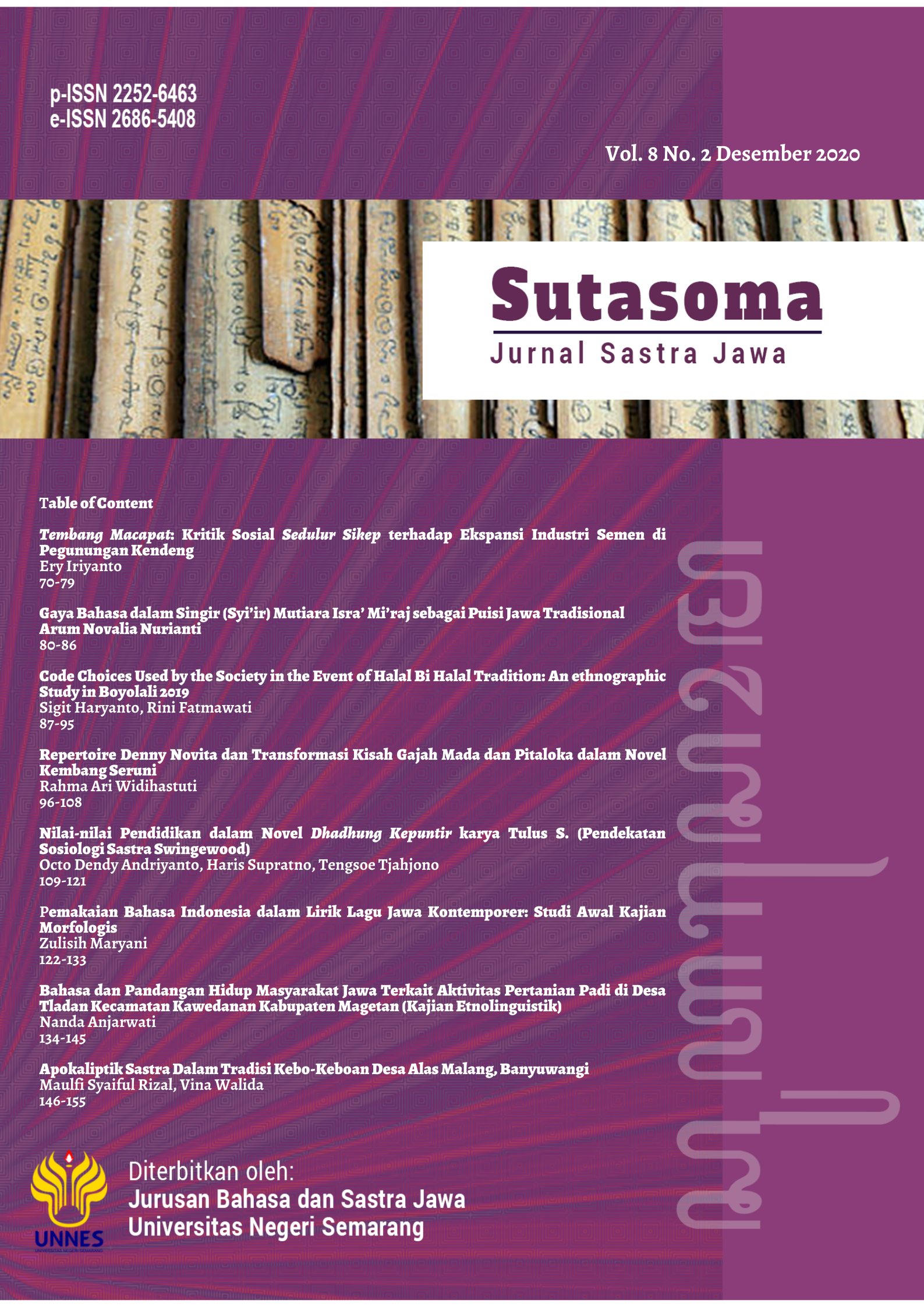Code Choices Used by the Society in the Event of Halal Bi Halal Tradition: An Ethnographic Study in Boyolali 2019
##plugins.themes.academic_pro.article.main##
Abstract
Language, culture, and society are three things that cannot be separated. The intertwining among them are reflected in halal bi halal tradition. This annually tradition mainly uses Javanese language as a main central of social communication. Two common codes that used by the participants in conducting the event are krama and ngoko. The participants when choosing the codes, of course, are influenced by the social factors. Dealing with this, the aim of this study is finding the language choices use and the factors that affect the participants selecting the codes. This ethnographic study used participant observation in collecting the data. Then, the collected data were analyzed by theory of social dimension proposed by Holmes. The results of the study showed that (1) the language choices use are (a) Javanese krama, (b) Javanese ngoko, (c) mixture of Javanese and Arabic, (d) mixture of Javanese, and Arabic, and Indonesian, and (e) Indonesian and Indonesian and (2) the factors that affect the language choices are (a) the social relationship of the participants, (b) the setting of the event, (c) the formality of the vent, and (d0 the function for the event. As a conclusion, code choices that happen in halal bi halal tradition are commonly affected by social factor or nonlinguistic factor.
##plugins.themes.academic_pro.article.details##
Untuk dapat diterima dan diterbitkan oleh Sutasoma : Jurnal Sastra Jawa, penulis yang mengirimkan naskah artikel harus menyelesaikan semua tahapan review. Dengan mengirimkan naskah, penulis menyetujui persyaratan berikut:
- Hak cipta atas artikel yang diterima diserahkan kepada Sutasoma : Jurnal Sastra Jawa selaku penerbit jurnal. Hak cipta yang dimaksud meliputi hak untuk menerbitkan artikel dalam berbagai bentuk (termasuk cetak ulang). Sutasoma : Jurnal Sastra Jawa mempertahankan hak publish atas artikel yang diterbitkan.
- Penulis diperbolehkan menyebarluaskan artikel yang telah diterbitkan dengan membagikan link/DOI artikel di Sutasoma : Jurnal Sastra Jawa]. penulis diperbolehkan untuk menggunakan artikel mereka untuk tujuan hukum yang dianggap perlu tanpa izin tertulis dari Sutasoma : Jurnal Sastra Jawa dengan pengakuan publikasi awal jurnal ini.
- Pengguna/penggunaan publik dari situs web ini akan dilisensikan ke CC BY-NC-SA (Attribution & Non-Commercial-ShareAlike).
